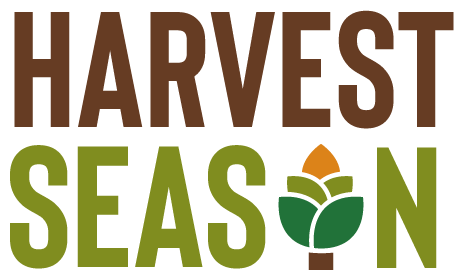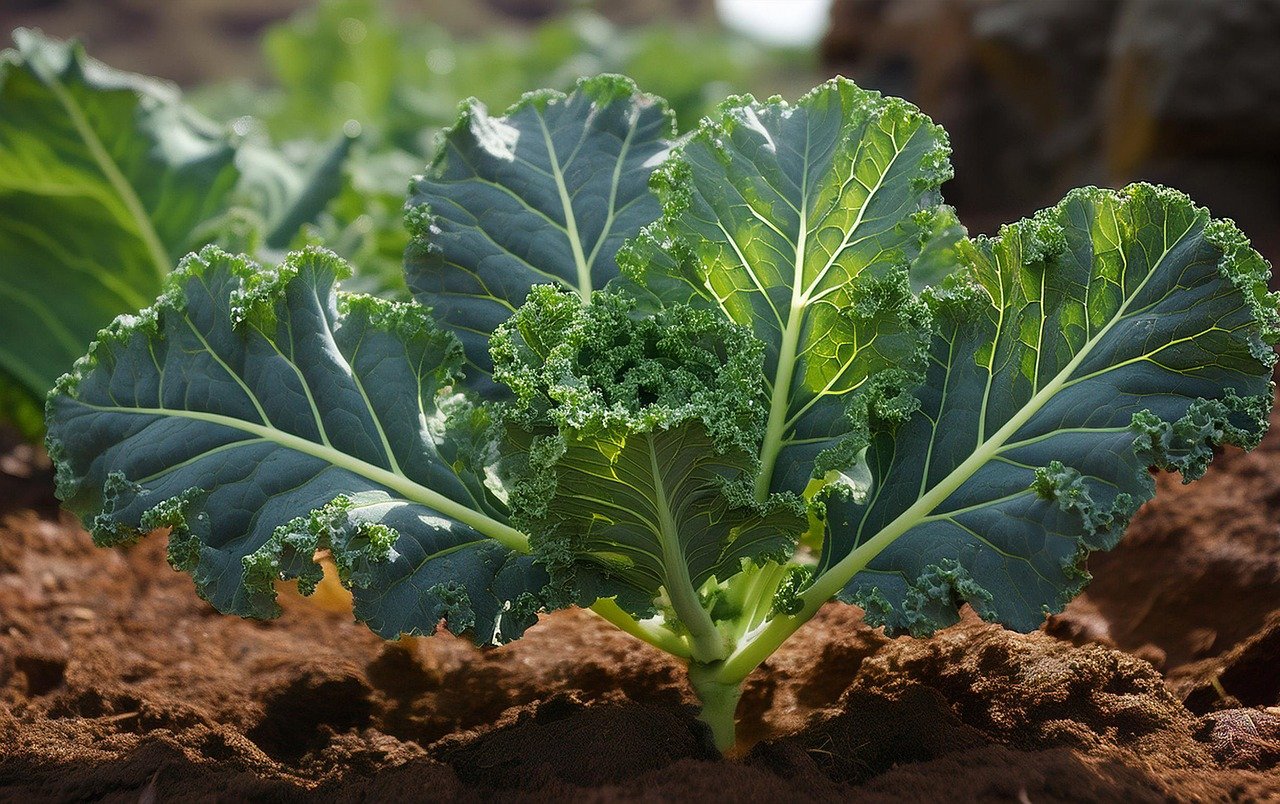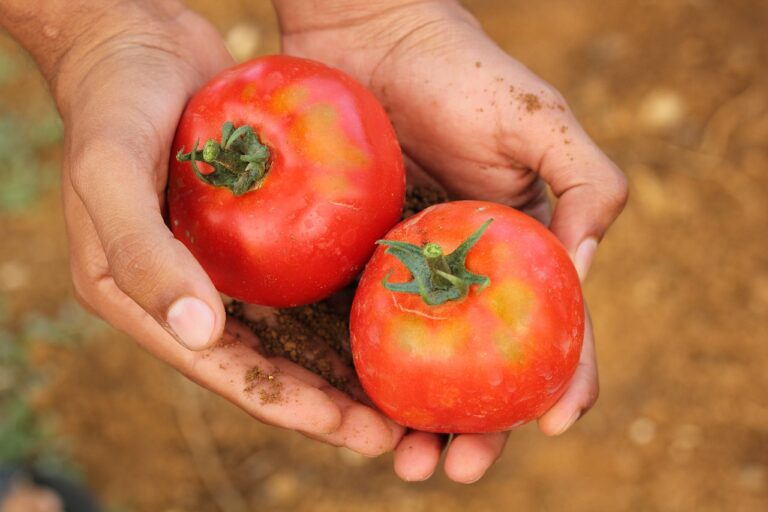Organic Farming Techniques in Kenya
In the vast landscapes of Kenya, where traditional farming methods have long been the backbone of the agricultural industry, a quiet revolution is taking place.
As you step into the world of organic farming, you will discover a harmonious blend of age-old practices and innovative techniques that challenge the conventional norms.
So, what exactly sets organic farming apart in Kenya? How are farmers embracing sustainable soil management, natural pest control, and efficient water conservation? And, most importantly, what successes have they achieved?
Prepare to be intrigued as we unravel the secrets of organic farming techniques in Kenya, where a greener and more sustainable future is being cultivated.
The Rise of Organic Farming in Kenya
Organic farming in Kenya has experienced a significant rise in popularity and adoption, as more farmers recognize the importance of sustainable agricultural practices. This shift towards organic farming techniques has had a positive economic impact on Kenya’s agricultural sector. Organic produce fetches higher prices in local and international markets, leading to improved incomes for farmers. Additionally, organic farming reduces the need for expensive chemical fertilizers and pesticides, further enhancing the economic sustainability of farming practices.
However, organic farmers in Kenya also face various challenges. One major challenge is the lack of access to markets and distribution networks. Many organic farmers struggle to find buyers for their produce, limiting their potential for growth and profitability. Additionally, organic farming requires a higher level of knowledge and expertise compared to conventional farming methods. Organic farmers need to understand and implement complex techniques such as crop rotation, composting, and integrated pest management. This requires continuous training and support, which may not always be readily available.
Despite these challenges, the rise of organic farming in Kenya reflects a growing awareness of the importance of sustainable agricultural practices. As more farmers embrace organic techniques, the economic impact isn’t only beneficial for individual farmers but also contributes to the overall development and sustainability of the agricultural sector in Kenya.
Sustainable Soil Management Techniques
As the demand for sustainable agricultural practices grows in Kenya, farmers are increasingly adopting sustainable soil management techniques to enhance the productivity and long-term health of their land. One key aspect of sustainable soil management is soil erosion prevention. Farmers are using various techniques to minimize soil erosion, such as contour plowing, terracing, and mulching.
Contour plowing involves plowing along the contours of the land, creating ridges and furrows that help to slow down and retain water. Terracing involves creating level platforms on sloping land, which help to prevent water runoff and soil erosion. Mulching, on the other hand, involves covering the soil with organic materials like straw or leaves, which help to protect the soil from erosion caused by wind and rain.
Another important aspect of sustainable soil management is organic pest management. Instead of relying on chemical pesticides, farmers are adopting organic methods to control pests and diseases. This includes practices like crop rotation, intercropping, and the use of natural predators.
Crop rotation involves growing different crops in sequence on the same land, which helps to disrupt pest life cycles and reduce pest populations. Intercropping involves planting different crops together, which can help to confuse pests and reduce the risk of pest outbreaks. Additionally, farmers are encouraging the presence of natural predators like ladybugs and birds, which feed on pests and help to keep their populations in check.
Natural Pest Control Methods
Farmers in Kenya are implementing natural pest control methods to protect their crops from pests and diseases. These methods aren’t only effective but also environmentally friendly.
Here are four natural pest control methods being used by farmers in Kenya:
- Biological Control: This method involves using natural enemies of pests to control their populations. Farmers introduce predators, parasites, or pathogens that target specific pests. For example, ladybugs are released to feed on aphids, which are common pests in many crops. This method helps maintain a balanced ecosystem and reduces the use of chemical pesticides.
- Companion Planting: Farmers practice companion planting by growing different crops together that have mutual benefits. Some plants repel pests, while others attract beneficial insects that prey on pests. For instance, planting marigolds alongside tomatoes can deter pests like nematodes, while attracting pollinators like bees.
- Crop Rotation: This method involves changing the type of crops grown in a particular field each season. By rotating crops, pests that are specific to certain plants are disrupted, reducing their populations. It also helps improve soil fertility and reduces the risk of diseases spreading.
- Physical Barriers: Farmers use physical barriers, such as nets, fences, or traps, to protect their crops from pests. Nets can be used to cover crops and prevent insects from reaching them, while fences can keep larger pests like rabbits or deer away. Traps are used to capture and remove pests from the field.
Crop Rotation and Diversification
When it comes to organic farming in Kenya, crop rotation and diversification play a vital role in achieving sustainable agricultural practices.
Diversification not only helps to reduce the risk of crop failure but also promotes biodiversity on the farm.
By rotating crops, farmers can break pest and disease cycles, improve soil fertility, and enhance nutrient availability, leading to healthier and more productive crops.
These techniques are essential in maintaining the long-term health and productivity of the soil, ensuring a successful organic farming system.
Benefits of Diversification
Crop rotation and diversification offer numerous benefits to organic farmers in Kenya. These practices enhance soil health, optimize nutrient availability, and control pests and diseases. Here are four key benefits of diversification in organic farming:
- Improved Soil Health: By rotating crops, farmers can reduce soil erosion and enhance soil structure. Different crops have different root structures, which helps to break up compacted soil and improve water and nutrient retention.
- Optimized Nutrient Availability: Diversification allows for the efficient use of nutrients. Some crops, like legumes, have the ability to fix nitrogen in the soil, reducing the need for synthetic fertilizers. By rotating crops, farmers can also reduce the build-up of pests and diseases that target specific plant species.
- Enhanced Pest and Disease Control: Crop rotation disrupts pest and disease cycles, making it harder for them to establish and spread. Planting different crops in sequence or together can also attract beneficial insects that prey on pests, reducing the need for chemical pesticides.
- Maximized Yields: Diversification helps to maximize yields by reducing the risk of crop failure. If one crop fails due to unfavorable weather conditions or pest infestation, other crops can still thrive, ensuring a more stable income for farmers.
Crop Rotation Methods
Implementing effective crop rotation methods is essential for organic farmers in Kenya to optimize soil health, nutrient availability, and pest control while maximizing crop yields. Crop rotation involves systematically changing the types of crops grown in a specific field over a period of time. This technique helps break the life cycles of pests and diseases, reduces soil erosion, and enhances soil fertility. Intercropping techniques can also be incorporated into crop rotation to further increase biodiversity and pest control. For example, planting legumes alongside cereal crops can improve nitrogen fixation and reduce the need for synthetic fertilizers. Organic farmers in Kenya also have various organic fertilizer options, such as compost, manure, and green manure, which can be used to replenish soil nutrients. By adopting these crop rotation methods and utilizing organic fertilizers, organic farmers in Kenya can maintain the health of their soil and produce high-quality crops sustainably.
| Crop rotation benefits | Examples of crops |
|---|---|
| Pest and disease control | Maize, beans, potatoes, tomatoes |
| Improved soil fertility | Legumes, green manure crops |
| Reduced soil erosion | Cabbages, kale, carrots |
| Increased biodiversity | Sunflowers, sorghum, millet |
Improving Soil Fertility
To improve soil fertility in organic farming, incorporating crop rotation and diversification is crucial. Here are four ways in which these practices can be implemented:
- Crop rotation: By rotating crops, you can break the cycle of pests and diseases that often target specific plants. This helps to maintain a healthy soil ecosystem and reduces the need for chemical pesticides.
- Diversification: Planting a variety of crops helps to improve soil health by promoting biodiversity. Different plants have different nutrient requirements, and by diversifying, you can ensure that the soil isn’t depleted of any specific nutrient.
- Improving irrigation methods: Efficient irrigation techniques, such as drip irrigation or mulching, can help conserve water and prevent soil erosion. By using water more effectively, you can ensure that the soil remains adequately hydrated and nutrient-rich.
- Organic fertilizers: Using organic fertilizers, such as compost or manure, can help replenish essential nutrients in the soil. These natural fertilizers release nutrients slowly, providing a steady supply of nourishment to the plants and promoting long-term soil fertility.
Efficient Water Conservation Strategies
What are some effective ways to conserve water on organic farms in Kenya?
Efficient water conservation strategies are crucial for organic farms in Kenya, considering the country’s water scarcity challenges.
One effective approach is implementing water-efficient irrigation techniques. These techniques include drip irrigation, which delivers water directly to the plant roots, reducing evaporation and water waste.
Another method is using sprinkler irrigation systems equipped with sensors that measure soil moisture levels and adjust water application accordingly. This ensures that crops receive the necessary amount of water without excessive waste.
Additionally, rainwater harvesting is a valuable strategy for water conservation. By collecting and storing rainwater during the rainy season, farmers can use it during drought periods or for irrigation purposes. This not only reduces reliance on scarce water resources but also helps replenish groundwater levels.
Proper storage facilities such as tanks or reservoirs are essential for rainwater harvesting to ensure its availability throughout the year.
Implementing these water-saving techniques on organic farms in Kenya can significantly contribute to sustainable agriculture practices and mitigate water scarcity challenges.
Composting for Nutrient-Rich Soil
If you want to improve the quality of your soil and increase crop yields, composting is a technique you should consider.
Composting has numerous benefits, such as enriching the soil with essential nutrients, improving soil structure, and promoting healthy microbial activity.
To start composting, you can collect organic waste like kitchen scraps, yard trimmings, and manure, then layer them properly and provide the right conditions for decomposition.
Benefits of Composting
Composting for nutrient-rich soil is a crucial practice in organic farming techniques, providing a natural and sustainable way to enhance soil fertility. Here are four benefits of composting:
- Improved Soil Structure: Compost helps loosen compacted soil, allowing roots to penetrate easily and absorb nutrients efficiently.
- Increased Nutrient Content: Organic matter in compost releases essential nutrients slowly over time, ensuring a steady supply of nourishment for plants.
- Enhanced Water Retention: Compost acts as a sponge, holding moisture in the soil and reducing the need for frequent irrigation.
- Soil Erosion Prevention: By adding compost to the soil, it helps create a protective layer that reduces erosion caused by wind and water.
Different types of organic compost, such as vegetable waste, animal manure, and yard trimmings, can be used to create nutrient-rich compost. Incorporating composting into your farming practices can significantly improve soil quality, leading to healthier crops and increased yields.
Composting Techniques
One essential aspect of organic farming techniques in Kenya is the implementation of effective composting techniques to ensure nutrient-rich soil. Composting is a natural process that transforms organic waste into a nutrient-rich soil amendment called compost. It is a cost-effective and environmentally friendly method of organic waste management. By composting organic waste such as food scraps, yard trimmings, and animal manure, farmers can reduce the amount of waste that goes to landfills while simultaneously creating a valuable resource for their crops. There are various composting techniques that can be utilized, including aerobic composting, vermicomposting, and static pile composting. Each technique has its own advantages and requirements, but all involve creating the optimal conditions for microorganisms to break down organic matter into compost. Implementing these composting techniques can greatly improve soil fertility and promote sustainable agriculture in Kenya.
| Composting Technique | Description |
|---|---|
| Aerobic Composting | Involves turning and aerating the compost pile to introduce oxygen, which speeds up the decomposition process. |
| Vermicomposting | Uses earthworms to decompose organic waste. The worms consume the waste and produce nutrient-rich vermicompost. |
| Static Pile Composting | Involves creating a pile of organic waste and allowing it to decompose over time without turning or actively aerating it. This method is less labor-intensive. |
Integrated Farming Systems
Integrated Farming Systems in Kenya involve the strategic combination of different agricultural practices to maximize efficiency and sustainability. This approach integrates various farming techniques, such as crop rotation, agroforestry, and animal husbandry, to create a self-sustaining and synergistic system.
Here are four key elements of Integrated Farming Systems:
- Crop rotation: This practice involves growing different crops in sequence on the same land. By rotating crops, farmers can prevent the build-up of pests and diseases, enhance soil fertility, and improve overall crop yield. For example, leguminous crops are often used in rotation as they fix nitrogen in the soil, reducing the need for synthetic fertilizers.
- Agroforestry: This technique involves combining trees with crops or livestock. Trees provide shade, windbreaks, and erosion control, while also offering additional income through the sale of timber or fruits. The presence of trees can also enhance biodiversity and provide habitats for beneficial insects, birds, and other wildlife.
- Animal husbandry: Integrated Farming Systems often incorporate livestock, such as cows, goats, or chickens. Animals provide manure for organic fertilizer, help control weeds and pests, and can be a source of additional income through the sale of milk, eggs, or meat. Proper management of animal waste ensures that it’s used as a valuable resource rather than a pollutant.
- Water management: Integrated Farming Systems focus on efficient water use through techniques like drip irrigation, rainwater harvesting, and the use of water-conserving crops. By optimizing water resources, farmers can minimize water wastage and ensure sustainable agriculture even in water-scarce areas.
Organic Certification and Standards
To understand the requirements and regulations for organic farming in Kenya, it’s essential to explore the topic of organic certification and standards. Organic farming regulations in Kenya are governed by the Kenya Organic Agriculture Network (KOAN), which is responsible for ensuring that organic farming practices meet the required standards.
The organic farming certification process is a rigorous one, involving various steps to ensure that farmers adhere to the principles of organic farming.
The first step in the organic farming certification process is the submission of an application by the farmer to a certification body accredited by KOAN. The certification body then conducts an initial inspection of the farm to assess its compliance with organic farming regulations. This includes verifying that the farm has been free from prohibited substances such as synthetic fertilizers and pesticides for the required period.
After the initial inspection, the certification body will conduct regular inspections to ensure ongoing compliance with organic farming standards. This includes assessing the farm’s soil fertility management, pest and disease control, and record-keeping practices. The certification body also examines the farm’s sourcing of organic seeds and inputs.
In addition to farm inspections, the certification body may also conduct product testing to check for the presence of pesticide residue or other contaminants. Farmers are required to maintain detailed records of their farming practices and inputs to demonstrate their compliance with organic standards.
Once a farm is certified, it can use the certified organic label on its products, indicating that they’ve been produced in accordance with organic farming regulations. This label is a guarantee to consumers that the products are free from synthetic chemicals and have been produced using environmentally sustainable practices.
Success Stories of Organic Farmers in Kenya
Several organic farmers in Kenya have achieved remarkable success in their agricultural practices, demonstrating the effectiveness and potential of organic farming techniques. Here are some success stories that highlight the positive impact of organic farming in Kenya:
- Charles Muriuki: In 2015, Charles Muriuki, a small-scale farmer from Nyeri County, transitioned from conventional farming to organic farming. He attended organic farming training sessions organized by a local NGO and learned about the benefits of using organic fertilizers and natural pest control methods. Within a year, his farm’s productivity increased by 30%, and he was able to sell his organic produce at premium prices.
- Jane Wambui: Jane Wambui, a farmer from Meru County, faced numerous challenges in conventional farming, including soil degradation and high input costs. After attending an organic farming training program, she adopted organic practices such as composting and intercropping. As a result, her farm’s soil health improved, and she reduced her reliance on expensive chemical fertilizers and pesticides.
- Peter Kamau: Peter Kamau, a farmer from Nakuru County, turned to organic farming after experiencing health issues due to exposure to chemical pesticides. Through organic farming training, he learned about natural pest control methods and started using biopesticides. Not only did his health improve, but his farm’s productivity also increased, leading to higher profits.
- Grace Mwende: Grace Mwende, a farmer from Machakos County, faced water scarcity and soil erosion in her conventional farming practices. After attending organic farming training, she implemented rainwater harvesting techniques and soil conservation practices. She now maintains a sustainable farm, with increased crop yields and improved water management.
These success stories demonstrate that with proper organic farming training and implementation of sustainable practices, Kenyan farmers can overcome challenges and achieve success in their agricultural endeavors.



